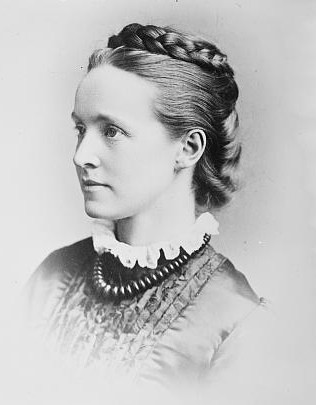Who is Millicent Fawcett? All about the first woman to get a statue in Parliament Square
Prominent suffragist played a key role in getting voting rights for women.
100 years after women won the right to vote, the first statue of a woman on Parliament Square is to be unveiled.
Prominent suffragist Dame Millicent Fawcett, who played a key role in getting voting rights for women, will be commemorated with a bronze statue in front of the Houses of Parliament.
London Mayor Sadiq Khan announced the news and said the statue was "long overdue."
The statue will be designed by Turner prize-winning artist Gillian Wearing and depicts Fawcett holding a placard that reads "courage calls to courage everywhere", based on her speech after the death of suffragette Emily Wilding Davidson.

"We want this statue to depict the strength and determination of the women who dedicated their lives to the fight for women's suffrage and to inspire many generations to come – and I know Gillian's creation will do just that," Khan said.
The Fawcett Society, a gender equality charity named after the suffragist, said the statue was a "fitting tribute" to an individual who made a "great contribution" to women's rights in the UK.
"Her contribution was great but she has been overlooked and unrecognised until now. By honouring her we also honour the wider suffrage movement," the society said in a statement.
Fawcett tirelessly campaigned for women's rights throughout her life. She co-founded Newnham College, the second Cambridge University college to admit women, in 1875 and was president of the National Union of Women's Suffrage Societies (NUWSS) for over twenty years.
As a suffragist, Fawcett dedicated herself to peaceful campaigning for women's rights and distanced herself from more radical members of the suffragette movement, such as the Pankhurst family.
She spent years gathering support for women's right to vote and played a key role in getting the government to pass the 1918 Representation of the People Act, which reformed the electoral system to enfranchise 8.4 million women over 30 years old. Ten years later, the government gave all women over the age of 21 the right to vote on equal terms with men.
Proud that we will have an icon of the women's suffrage movement commemorated in Parliament Square.
— Mayor of London (@MayorofLondon) September 19, 2017
Last year, feminist activist Caroline Criado-Perez launched a campaign for a statue of Fawcett to be erected in Parliament Square.
"Millicent Fawcett was there from the very beginning of the fight for women's suffrage," she said at the campaign launch. "At the age of 19 she organised signatures for the first petition for women's votes to be handed to Parliament. She died the year after women were finally granted equal voting rights in 1928.
"It's shocking that she doesn't already have a statue of her own — and Parliament Square is the obvious place for her to be. Not round the corner, or up the road. Nothing less than Parliament Square will do," she said.
Her petition to build the statue received more than 85,000 signatures.
Criado-Perez, who also successfully campaigned for Jane Austen to feature on £10 banknotes, said she was "delighted" that the government had decided to erect the statue for Fawcett.
"I'm thrilled that we have been given the go ahead to install not only the first statue of a woman in Parliament Square, but also the first statue created by a woman."
FIRST STATUE OF A WOMAN IN PARLIAMENT SQUARE IS HAPPENING. FIRST STATUE BY A WOMAN IN PARLIAMENT SQUARE IS HAPPENING. WE. WON! !!!! ðŸ˜ðŸ˜ðŸ˜ðŸ˜ðŸ˜ðŸ˜ðŸ˜
— Caroline CriadoPerez (@CCriadoPerez) September 19, 2017
© Copyright IBTimes 2025. All rights reserved.






















